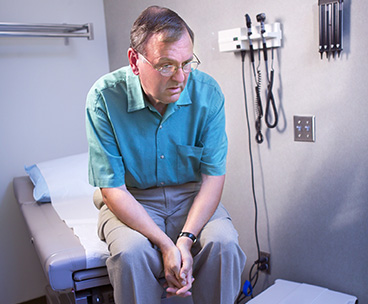We want our lab results fast—within 24 hours when the test involves a serious illness, according to a new American Society for Clinical Pathology (ASCP) survey. But experts say it’s worth the wait to ensure accuracy, and allow time for more extensive processing.
Results from PSA screening for prostate cancer or cholesterol tests can take one week or less.
“But Pap smears for cervical cancer must be specially prepared before slides can be reviewed by medical lab professionals,” said David Glenn, chair of the ASCP communications committee. “Most people don’t realize that an average Pap slide contains tens of thousands of cells, and the lab specialist is required to look at every cell. That takes time.”
Glenn advises patients to ask their doctors the following questions about their laboratory tests:
- What tests are you ordering?
- What will they tell you about my health?
- When will I know the results?
- Should I call you for the results, or will you call me?
“If it’s been a week, and you were told you would have results by then, call the doctor’s office,” he said.
Why the Wait?
Accuracy. To help safeguard against inaccuracies, federal legislation known as the Clinical Laboratory Improvement Amendments (CLIA) sets standards for laboratories to assure the testing is being performed accurately. CLIA limits the number of Pap slides that can be read in one day by a cytotechnologist (a specially trained lab professional who examines cells for early signs of cancer and other diseases). A pathologist (a medical doctor with an advanced specialty in laboratory medicine) must review Pap slides that show abnormal or suspicious cells. In addition to reviewing these tests, a pathologist also must review a percentage of normal Pap tests to ensure continual accuracy, according to CLIA regulations.
Complexity. Some tests require multiple and time-consuming steps. For example, a mole sample must be fixed in preservative, embedded in wax, cut into extremely thin slices, placed on slides, stained, and examined under a microscope by a pathologist. Special stains or further studies may be needed to make the diagnosis, and complete the report. Tests for strep throat or a urinary tract infection involve placing a specimen in a substance that allows bacteria or other microorganisms to grow to a level that can be seen, separating the organisms, and testing them to see if they are causing disease and what medications will be effective.
Priority Testing. Tests that may have an immediate impact on the patient’s care are ordered by the physician as a priority and processed first in the laboratory. For example, an emergency room patient who appears to be in a diabetic coma will have a glucose test ordered immediately and results will be available within a few minutes so the appropriate treatment can be given as soon as possible. Routine, non-urgent tests are processed by lab professionals as part of their normal workload.
Another factor that may add to lab wait times is the anticipated shortage of lab professionals.
“The aging of the population has led to a growing number of lab tests and ASCP is concerned that the current shortage of lab professionals may make it difficult to meet the public’s demand for prompt results,” said John E. Tomaszewski, MD, FASCP, president of ASCP and professor and interim chair of the Department of Pathology and Laboratory Medicine, University of Pennsylvania, Philadelphia. Lab tests are involved in more than 70 percent of medical decisions.
According to the U.S. Department of Health and Human Services, 138,000 new laboratory professionals will be needed by 2012, but fewer than 50,000 will be trained.
More Survey Findings
The ASCP survey, conducted in part to recognize National Medical Laboratory Professionals Week (April 24-30, 2011), also reports that 74 percent of adults in the U.S. believe that at least 50 percent of doctors’ decisions are based on lab tests; 84 percent recognize that lab tests are conducted by laboratory professionals; 57 percent expect to get routine test results within a week or more and 41 percent expect them in a day or less, and 63 percent expect the results of biopsies that test for serious disease should be received within a day or less and 37 percent expect to wait a week or more.
[The ASCP consumer survey was conducted March 10-13, 2011, by Opinion Research Corp., Princeton, N.J. More than 1,000 male and female adults over the age of 18 were randomly selected to participate in a telephone survey that focused on knowledge of the medical laboratory profession and lab results.]
Become a Saturday Evening Post member and enjoy unlimited access. Subscribe now



